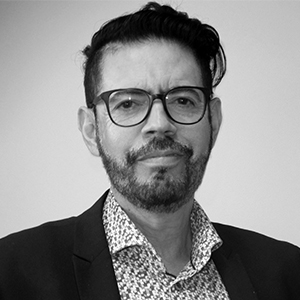About Us
The AHF Global Public Health Institute engages in global public health policy analysis and research to generate objective evidence that can inform improvements in public health policy at the global, regional, national and local levels, particularly for infectious diseases.
Statement of purpose
To engage in global public health policy analysis and research by generating objective evidence that can inform improvements in public health policy at the global, regional, national and local levels, not just for HIV, but for other aspects of public health as well.
Vision
We seek to ensure that global, regional, or national public health policies are evidence-based.
Mission
Foster scientific evidence around the most pressing global public health challenges aiming to inform public policy and advocacy, particularly for infectious diseases.
Goals
The research carried out at the institute seeks to support scientific evidence on global public health to inform public policy not only centered on HIV but on the XXI century global challenges that impact the different regions of the world in different ways, such as:
Modeling estimates of costs necessary for full control of the HIV epidemic, other pandemics, and public health emergencies of international concern.
Policy analysis of global, regional, and national responses to HIV, COVID-19, Zika, and other infectious diseases with pandemic potential.
Analysis of alternatives to respond to regional and/or global health security concerns.
Local projects to increase HIV testing, linkage to care, retention, viral load suppression, and overall access to treatment.
Create an infrastructure supportive of an Institute for Global Public Health Policy and Operational Research.
Disseminate information and create spaces for debate on global, regional, or national policies in response to communicable diseases with epidemic potential.
Support and promote the publication of research conducted or supported by the AHF Global Public Health Institute.
Collaborate and support academic and scientific institutions at the global, regional, or national level to strengthen epidemiological surveillance as an important tool in the monitoring and control of pandemics.
Advisory Committee Chairs
Advisory Committee
Institute’s Team
Institute’s Contributors
Advisory Committee Chairs
Under Construction
Advisory Committee
Under Construction
Institute’s Team
Executive Director

Jorge Saavedra
Team

Guilherme Ferrari Faviero
Director
AHF Global Public Health Institute at the University of Miami

José Szapocznik

Ariel García

Dayana Rojas

Juan Manuel Alvarez Iraizos

Jacob Batycki

Anicca Liu
Institute’s Contributors

Anton Castellanos (independent)

Daniel Feaster

Adam Cohen (AHF)

Silvana Erbstein (AHF)

Sergio Lagarde (AHF)

Michele Manrique (AHF)

Rafael Mazin (independent)

Miguel Pedrola (AHF)

Mario Stevenson (UM)

Jan Vandenhombergh (AHF)

Pan Yue (UM)

Adam Carrico (UM)